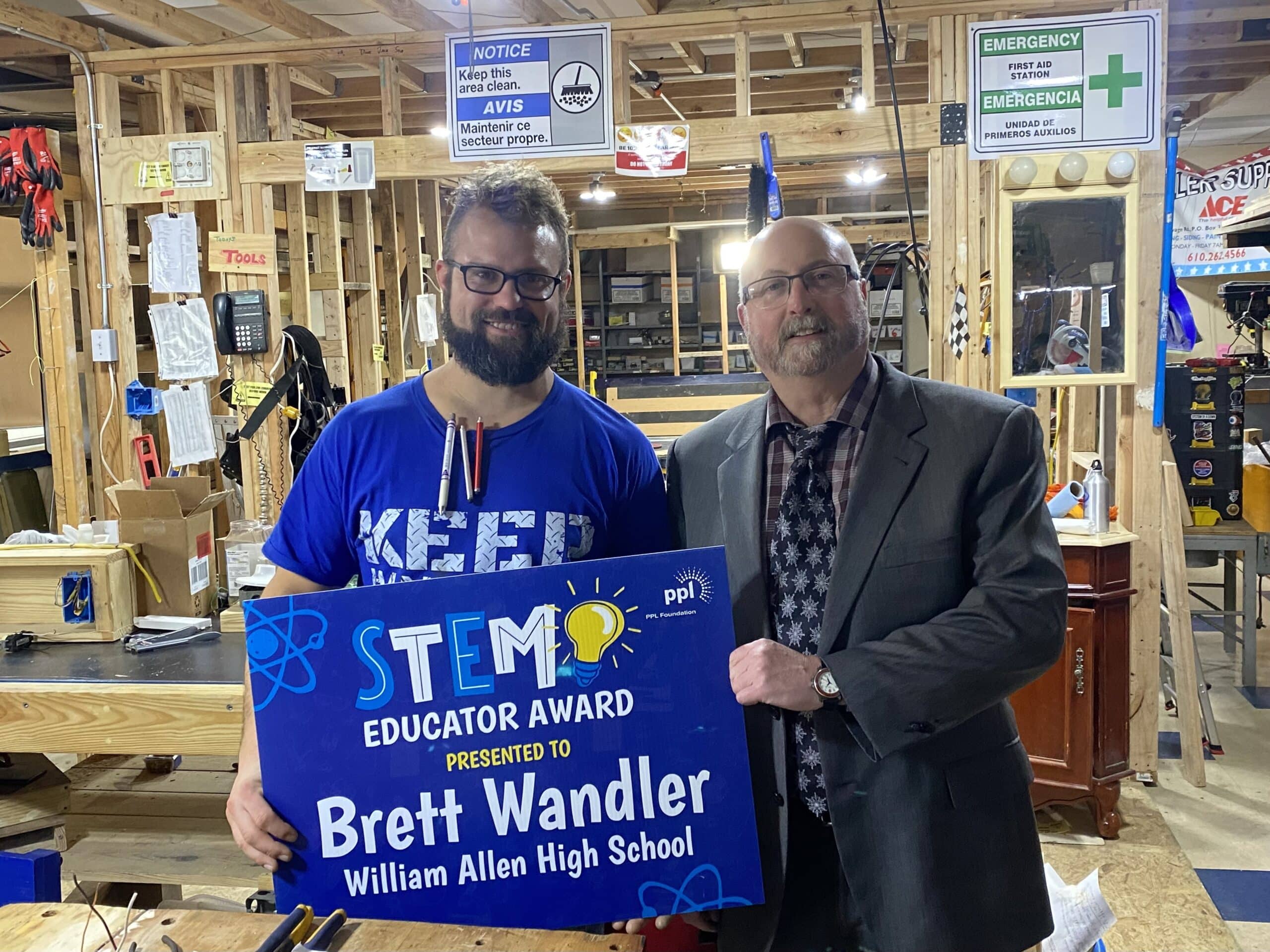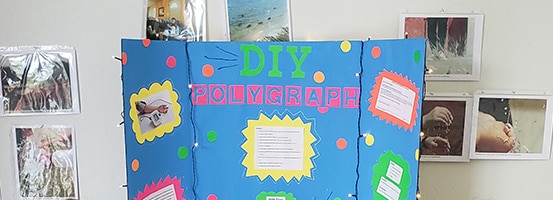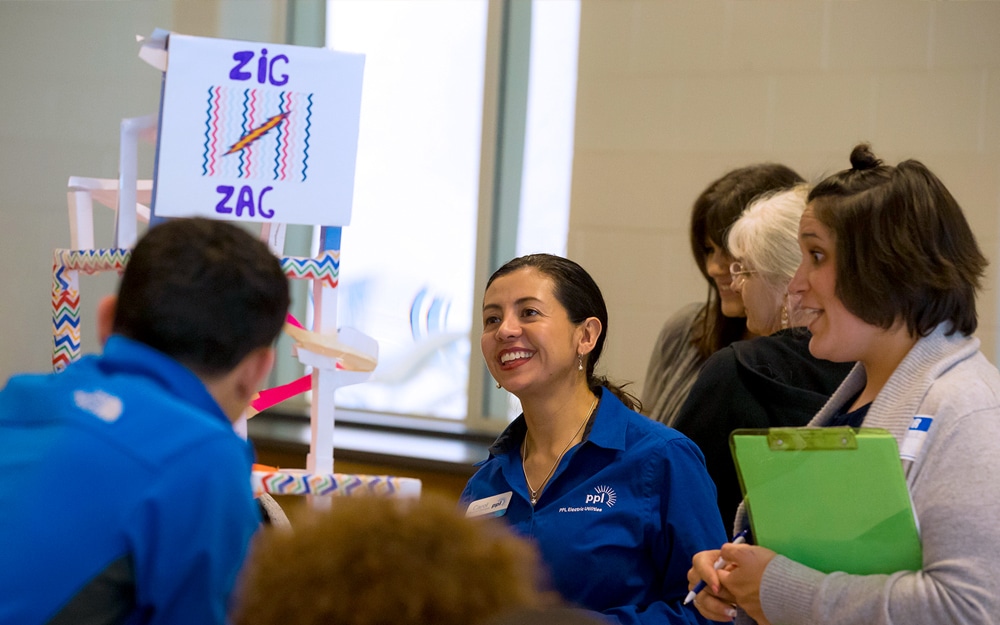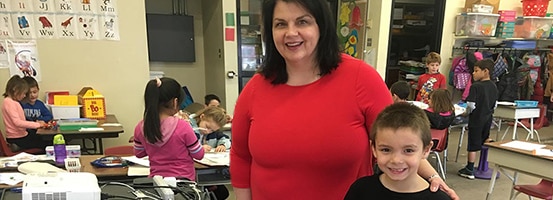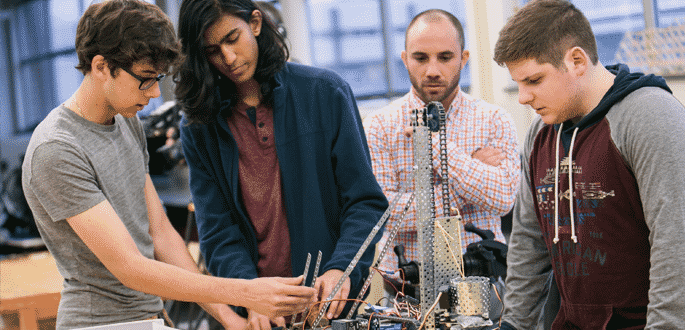Educator Grants
PPL’s STEM Educator Awards honor teachers who have demonstrated success in designing and facilitating student-centered STEM learning that engages the next generation of innovative thinkers.
The award recognizes outstanding classroom science teachers that provide hands-on learning opportunities to enhance the classroom experience and spark students’ interest in STEM.
Why STEM Educator Awards?
As an energy company, PPL is creating the utility of the future. Supporting a strong foundation in education is critical to the success of today’s students and helps to create the highly skilled workforce of the future.
$2,500
top award for outstanding teacher
$500K
donated since 2003
Nomination and Award Timeline
Find out where we are in our current grant cycle and whether you can apply today.
Sep 1 – Sep 30
Nominations accepted
Oct 1 – Oct 31
Applications accepted
October
Applications reviewed and approved
November
Winners notified and grants dispersed
Frequently asked questions.
Don’t see your question below? Connect with us.
K-12 teachers in schools serving communities within PPL’s Pennsylvania service territory (see the counties list below) are eligible to apply. Only individual teachers may apply. Winners within the last five years will not be eligible.Nominees/applicants must be full-time K-12 teachers, employed in a public school in the communities served by PPL Electric Utilities in Pennsylvania, with at least 3 years of experience teaching. Colleagues, students, parents, or community members can submit nominations by September 30th. We will reach out to the educator to inform them of their nomination and invite them to apply. Educators may self-nominate by applying directly.
One outstanding classroom science teacher (K–12) will receive $2,500 for classroom supplies and professional development. Three teachers, one from each level – elementary school, middle school and high school – will receive $1,500 for classroom supplies.
Our objective is to improve the quality of life in the communities we serve, with a particular focus on the 29 Pennsylvania counties served by PPL Electric Utilities. We serve the following regions in PA:
- Berks
- Bucks
- Carbon
- Chester
- Clinton
- Columbia
- Cumberland
- Dauphin
- Juniata
- Lackawanna
- Lancaster
- Lebanon
- Lehigh
- Luzerne
- Lycoming
- Monroe
- Montgomery
- Montour
- Northampton
- Northumberland
- Perry
- Pike
- Schuylkill
- Snyder
- Susquehanna
- Union
- Wayne
- Wyoming
- York
Colleagues, students, parents, or community members can submit a nomination for this award by clicking on the nomination form here. Nominations are due by September 30. We will reach out to the educator to inform them of their nomination and invite them to apply. Educators may self-nominate by applying directly.
- Resume/CV that includes relevant career positions, degrees, and other professional activities.
- Two letters of recommendation, including one from the applicant’s building administrator/supervisor.
- Sample STEM Lesson, including:
- Overall goal and objectives of the lesson
- Plan for lesson describes learning activities, sequence and timing.
- Supporting documents (i.e. student handouts, resources, rubrics)
- Grade-level standards that are supported.
- 3-4 scans/photos of student work samples and/or students engaged in learning (please redact names and ensure photo permissions).
- Reflection on student learning that was achieved.
- Personal Reflection on STEM Learning that addresses:
- How do you engage your students in STEM learning and why is it valuable for students and the community?
- What are some short and some long-term benefits from students engaging in STEM learning?
Decisions on STEM Educator Awards will be made by November 30 of each year. Grant applicants will receive an email notification of the grant award decision.
STEM Educator Spotlight
Get to know some of the innovative educators that have received recognition through the PPL Foundation’s educator grant program.
